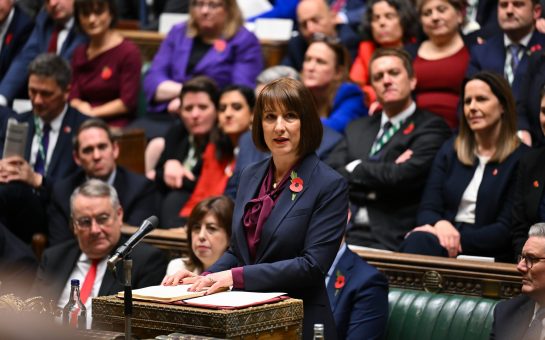We all know Manchester as a hot bed of culture and creativity but did you know that through the years it has also been the setting for numerous films dealing with issues as diverse as the city itself?
A while back MM gave you our top five movies filmed in Manchester but what about those actually set in the city?
MM look back through the archives…
(5) Hobson’s Choice – based on the play by Harold Brighouse. The film was made in 1954 and starred Charles Laughton and John Mills.
It is set in 1880’s Salford and tells the story of hard-drinking tyrannical shoe shop owner Henry Hobson and his three daughters. The film deals with issues surrounding class and gender divides in a changing society.
In the film Hobson is forced to deal with the fact that his business relies on his daughters to be successful and on his former boot maker, now son-in-law, who has become successful in his own right.
Ultimately Hobson is forced to take his son-in-law as a partner in his business or risk bankruptcy and to accept that he cannot cope without the help of his daughters.
In the end the film is heart-warming moral story that talent and hard-work can overcome any obstacle.
(4) A Taste of Honey – is a 1961 film based on the play of the same name by Salford-born writer Shelagh Delaney.
Set in Salford in the late 1950’s the film deals with possibly every taboo subject going at the time and exemplifies the kitchen sink realism that was the bedrock of British films of this era.
It’s the story of a schoolgirl who is made pregnant by a black sailor and who raises the baby with her gay friend after her domineering, alcoholic mother forces her out of her house so she can remarry. The mother eventually reappears and forces the gay friend out of the house and takes up residence herself.
It’s as bleak as it sounds even by today’s standards but the humour in Delaney’s script shines through between some pretty gritty stuff.
(3) Yanks – oversexed, overpaid and over here as the saying went, this 1979 film was set in Oldham and starred Richard Gere and Vanessa Redgrave.
The film depicts the relationships between American soldiers stationed in Northern England and the local population during the build-up to D-Day in 1944.
In particular, it deals with the romances between US service personnel and local women, in order to explore the effects of the cultural differences between the brash GI’s or “Yanks” and the more reserved British population.
It leaves you in little doubt of the consequences of these wartime assignations. In the closing scene a number of pregnant women see their American boyfriends off at the railways station on the way to a battle from which many would not return.
(2) East is East – is a 1999 British comedy-drama film based on the play of the same name.
Set in Salford in 1971 it is about a mixed-ethnicity British household headed by Pakistani father George and a white English mother. George expects his family to follow Pakistani traditions, but his six sons and one daughter, who were born and grew up in Britain, increasingly see themselves as British.
They reject Pakistani customs of dress, food, religion, and living in general, leading to a rise in tensions and conflicts in the family.
The film reaches boiling point on the issue of arranged marriage and forces the family to face the cultural shifts which are taking place both around it and within it.
It deals with complex issues surrounding mixed race and religion, domestic violence and a family struggling to deal with social change.
Once again a Salford-based film deals with a huge number of gritty social issues but does it with a script that heavy with rich Northern humour sometimes of the darkest type.
(1) 24 Hour Party People – this 2002 film is the loosely based on the life and times of ‘Mr. Manchester’, Tony Wilson and starring Steve Coogan.
The film begins with the punk rock era of the 1970s and moves through the 1980s into the “Madchester” scene of the late 1980s and early 1990s.
Tony Wilson was a news reporter for Granada TV, head of Factory Records and one of the founders of the Hacienda nightclub. The narrative largely follows his career, while also covering the major Factory artists, especially Joy Division, New Order and the Happy Mondays.
The film is a dramatisation based on a combination of real events, rumours, urban legends and the imagination of scriptwriter Frank Cottrell Boyce and doesn’t try to hide it.
The actors are often intercut with real contemporary concert footage, including the legendary Sex Pistols gig at the Lesser Free Trade Hall in 1976.
The film deals with the often chaotic organisation at Factory records and with the drugs scene in Manchester as well as the suicide of Joy Division lead singer Ian Curtis.
Most notable for Coogan’s ‘to camera’ speeches which play-up Wilson’s often pretentious style, it’s a film which tells the story of a unique time in Manchester’s development from rundown Northern industrial centre to the thriving city it is today.
Image courtesy of Film4 via YouTube, with thanks
For more on this story and many others, follow Mancunian Matters on Twitter and Facebook.



